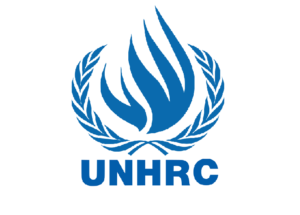 On her mission to Sri Lanka
On her mission to Sri Lanka
Put into general distribution on March 23, 2017
Available online at http://ap.ohchr.org/documents/dpage_e.aspx?si=A/HRC/35/31/Add.1
Report of the SR Independence Judges Lawyers Mar 2017
Website of the Special Rapporteur
Prevention of Terrorism Act
70. At the time of writing, the Prevention of Terrorism Act had not yet been repealed, despite repeated calls for the authorities to do so immediately, including from the Special Rapporteur and the Special Rapporteur on torture and other cruel, inhuman or degrading treatment or punishment at the end of their visit. The Act, adopted in 1979, imposes severe restrictions on courts’ jurisdiction and authority to prevent abusive detention and torture and seriously undermines the fundamental right of defendants to a fair trial. The continuation of a normative framework that contributes to violations of fundamental human rights cannot be justified.
71. If any specific legislation is to be adopted to replace the Act — and the Special Rapporteur is not convinced of that necessity — it must be in line with international human rights law and standards, in particular safeguards against arbitrary arrest and detention, unfair trials and torture.12
Persisting impunity
87. The failure to hold perpetrators accountable for gross human rights violations, serious violations of humanitarian law and international crimes in Sri Lanka has long been documented. Furthermore, while the conflict lasted, there was virtual impunity for any abuse committed by the police or the security forces. Impunity is so widespread that it has become a normal occurrence, thereby contributing to shattering the public’s confidence in its judiciary. Since the change of government, some positive steps seem to have been taken, as five new cases were reportedly being investigated at the time of the visit (in all five cases, the military intelligence apparatus was allegedly involved). In a now famous case before the High Court in Jaffna, a military officer was condemned to 25 years in prison for rape. While that case is still an exception, it gives hope that justice can be done.
Conclusions
95. Sri Lanka is at a critical moment in its history. While the armed conflict ended in 2009, after more than 25 years many of the structures of a nation at war remain in place. The fabric of Sri Lankan society was left ravaged and the justice sector still needs to tend to its deepest wounds.
96. In general, the administration of justice should be more transparent, decentralized and democratic. The country needs to conduct a strict exercise of introspection, so as to improve the independence, quality and credibility of its judiciary, the Attorney-General’s department and the police forces. A significant change in the attitude and sensitivity of many members of the legal professions, in particular the judiciary, towards reforms and human rights will be necessary. Guidance on how to go about strengthening the independence, impartiality and competence of those involved in the administration of justice can be found in the present report, but also in an important number of international and regional instruments, including the Commonwealth Principles on the Accountability of and the Relationship Between the Three Branches of Government endorsed in 2003.
97. While the democratic gains of the past two years must be welcomed, it is important to recognize that much more could and should have been done to manifest a commitment to genuine reform, in particular in the justice sector, and to create meaningful and participatory transitional justice mechanisms. More tangible reforms are expected and necessary before the country can be considered to be on a stable and sustainable path towards democracy and to be governed by the rule of law. It is important to accelerate the process of positive change within a comprehensive and inclusive framework, otherwise the momentum for such reform could be lost.
98. Building a justice system that all sectors of society will trust and be able to rely on to defend and enforce their rights will take time. Bold steps need to be taken, as a sign of the authorities’ commitment to address the atrocities of the past and, above all, the structures that allowed such atrocities to happen. It is important to remember that justice must not merely be done, but must also be seen to be done.